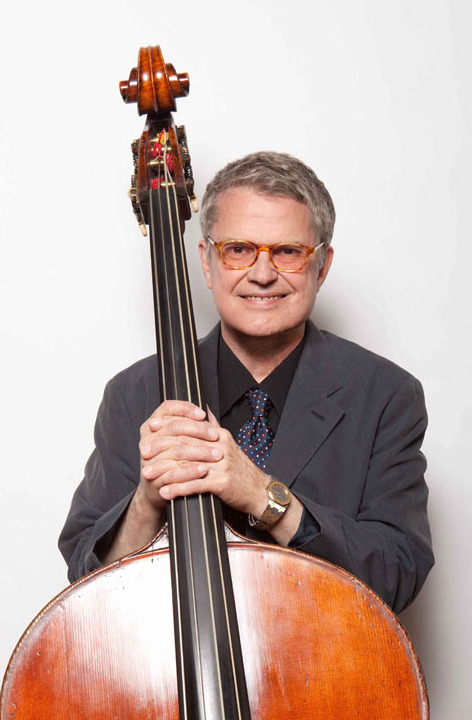NEW YORK — Bassist Charlie Haden, who helped change the shape of jazz more than a half-century ago as a member of Ornette Coleman’s groundbreaking quartet and liberated the bass from its traditional rhythm section role, died Friday in Los Angeles. He was 76.
Haden’s wife of 30 years, singer Ruth Cameron, and his four children were by his side when he died after a prolonged illness, said publicist Tina Pelikan of ECM Records.
Haden’s career was marked by the triumph of beauty over suffering. He turned to the bass after losing his singing voice to polio as a teenager when he was performing with the Haden Family country band.
The onset of post-polio syndrome in late 2010 forced him to stop performing publicly, although he played at home to his favorite recordings as well as with visiting musician friends such as guitarist Pat Metheny and pianist Alan Broadbent.
During his career, Haden’s lyrical bass playing could be heard in a broad range of musical genres, ranging from jazz to country to world music.
“I want to take people away from the ugliness and sadness around us every day and bring beautiful, deep music to as many people as I can,” Haden said in a 2013 interview The Associated Press shortly before receiving a Lifetime Achievement Grammy Award.
At the time, the Recording Academy cited Haden as “an all-American jazz musician best known for his signature lyrical bass lines and his ability to liberate the bassist from an accompanying role.”
The Grammy recognition – as well as being named a Jazz Master in 2012 by the National Endowment for the Arts – was a far cry from the reception Haden received in the late 1950s as a member of Coleman’s revolutionary quartet.
The quartet’s 1959-60 engagement at New York’s Five Spot club was one of the seminal moments in jazz history as musicians heatedly debated this new music dubbed “free jazz” that challenged the bop establishment by liberating musicians to freely improvise off of the melody rather than the underlying chord changes.
“Some people didn’t understand what we were doing and they were afraid because they’d never heard anything like that before – so we dealt with it the best we could,” Haden said in the 2013 interview.
Haden found a kindred spirit in Coleman, whom he met after relocating to Los Angeles in 1957. The quartet – with trumpeter Don Cherry and drummer Billy Higgins – released the aptly named album “The Shape of Jazz to Come” in 1959.
“I wanted to play on the inspiration of a composition rather than on the chord structure – and every time I tried to do this the other musicians that I was playing with would be upset with me,” Haden recalled in a 2006 AP interview.
But even as a member of Coleman’s quartet, Haden drew on the harmonies and melodies he learned playing country music as a child.
Haden saw the common link between jazz and country – both are poor people’s music related to “the struggle for independence, identity and to be recognized,” he said in a 2009 AP interview following the release of his first country album, “Rambling Boy” on which he returned to his roots, playing songs by the Carter Family and other traditional country musicians.
“My roots have never left me … because the very first memory I has is my mom singing and me singing with her,” Haden said in the 2009 interview. The CD included Haden’s first recorded performance – an excerpt from a 1939 Haden Family radio show on which 22-month-old Cowboy Charlie yodels on a gospel tune.
Haden was born on Aug. 6, 1937, in Shenandoah, Iowa, and soon began performing with his parents and siblings as the youngest member of the Haden Family band, which had its own radio show and was popular on the Midwest country circuit.
But polio weakened his vocal cords and ended his singing career at age 15, leading him to focus on the bass. He became interested in jazz after hearing Charlie Parker perform with Jazz at the Philharmonic, and headed to Los Angeles to study music and begin performing.
Send questions/comments to the editors.



Success. Please wait for the page to reload. If the page does not reload within 5 seconds, please refresh the page.
Enter your email and password to access comments.
Hi, to comment on stories you must . This profile is in addition to your subscription and website login.
Already have a commenting profile? .
Invalid username/password.
Please check your email to confirm and complete your registration.
Only subscribers are eligible to post comments. Please subscribe or login first for digital access. Here’s why.
Use the form below to reset your password. When you've submitted your account email, we will send an email with a reset code.